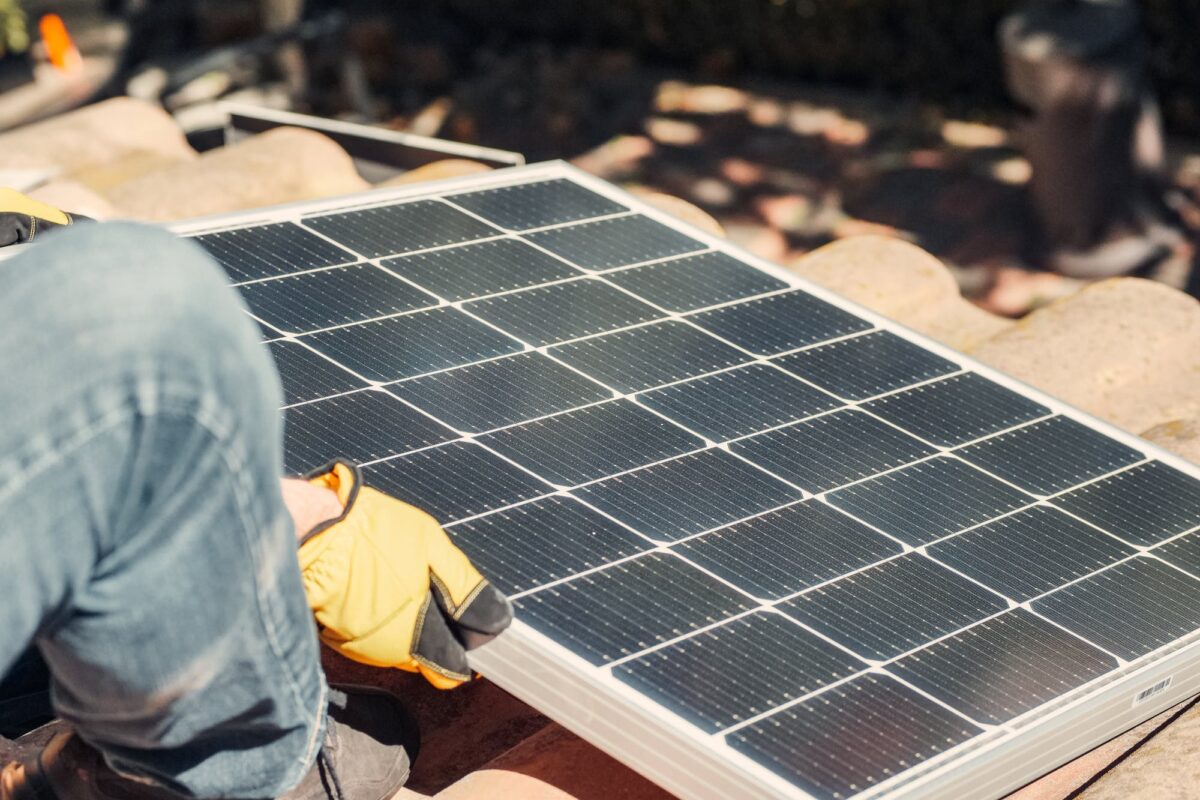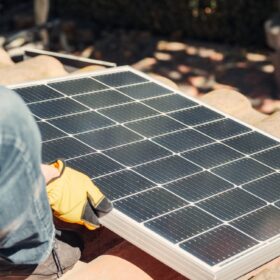As the Trump Administration puts pro-coal ideologues in key positions of power and continues to downplay or ignore the seriousness of climate change, the district and city which hosts the U.S. federal government is preparing to set a more ambitious renewable energy mandate than any state to date.
On Tuesday the Washington D.C. City Council held the first of two hearings scheduled for a bill that will set a mandate that utilities operating in the district source 100% of their electricity from renewable energy by 2032. This would double the current requirement that utilities must source 50% of their power from renewables by that date.
So far the most ambitious renewable portfolio standard (RPS) policy in the United States is in Hawaii, which is calling for 100% renewables in electricity by 2045. California has a similar target, but mandates 100% zero-carbon resources by 2045, which could include other technologies.
The bill also requires that 70% of the renewable energy credits used to meet this mandate come from facilities with which the utility has a power contract lasting 7 years or longer.
Super-charged solar mandate
Bill B22-0904 (full text) would not only set this ambitious mandate for renewable energy overall, but would also require that utilities procure at least 5% of their power from solar energy by 2032. This includes an interesting detail where this standard increases if the carve-out is exceeded in any given year, according to the following formula:
if the solar energy achieved in a given year exceeds the solar energy standard in that year, the solar energy standard of the subsequent year shall increase by one plus the percentage difference between the solar industry standard in that year and the actual percentage of solar achieved for that year, multiplied by the subsequent year’s solar energy standard, provided that the solar energy standard shall not exceed a percentage to equates to a total installed capacity of 1.68 GW.
According to data from the U.S. Department of Energy, Washington D.C. generated 52 gigawatt-hours of electricity from solar in 2017, which is equivalent to less than 0.5% of the district’s demand. This bill would require 3x as much solar as this by the end of 2019, and 10x as much by 2032.
It is unlikely that this will all be built in Washington D.C. itself, as the densely populated district currently procures nearly all of its electricity from outside of its boundaries.
However, the solar energy standard really gets going in 2033. There, procurement is bound to the following rule:
Beginning in 2033, the solar energy standard of each year shall be determined by multiplying the actual percentage of solar energy achieved in the year 2 years prior multiplied by one plus the average percentage increase in solar energy capacity addd in the prior two years; provided that the solar energy standard shall not exceed a percentage that equates to a total of 1.68 GW.
For reference, Washington D.C. had 53 MW of solar at last count. Assuming a 15% capacity factor, reaching the 1.68 GW cap would mean roughly 2.2 terawatt-hours of annual electricity generation, or roughly 20% of the district’s current annual demand.
B22-0904 must move through two committees before a final vote: the Committee on Transportation and the Environment and Committee on Business and Economic Development.
However, the bill is looking very strong at the moment. No only was B22-0904 introduced by five of the council’s 13 members, including council Chair Mendelson, but it has attracted the support of three more councilmembers as co-sponsors. This means that a majority has expressed its support.
This content is protected by copyright and may not be reused. If you want to cooperate with us and would like to reuse some of our content, please contact: editors@pv-magazine.com.









Christian Roselund is an excellent reporter, but his opening paragraph is more an editorial opinion than factual reporting. Instead of referring to President Trump as a climate change denier; how about an article from Christian Roselund where the new DONALD TRUMP federal tax-credits for carbon, capture and storage are illuminated?
The solar industry has been subsidized far too long under the socialist/Obama and the Trump Administration’s ending of solar federal tax-credits is the best thing that could happen for solar energy into the free market and new energy economy. It much more AUSTRIAN than KEYNESIAN, and Roselund should know better.
Thanks for the compliment.
I disagree on several counts. First, I did not state that President Trump is a climate denier; though there is adequate evidence that he is. What I said is that the Trump Administration is not talking about or acting on climate change as a serious threat. There is overwhelming evidence of this, from pulling out of the Paris Agreement to his EPA gutting fuel economy standards to the appointment of a former coal lobbyist to run EPA and pro-fossil ideologues to two seats on FERC to the DOE attempting to ram through a coal bailout.
Compared to the overwhelming total of these actions, tax credits for CCS (which has been a disaster in the one large coal CCS project to be launched so far) are a weak action.
And I noted this because the very same city where all these actions are taking place is considering such an aggressive target.
As for the ending of the tax credits, I actually agree that a phase out of the ITC was in order. However that had more to do with a congressional compromise than President Trump.
Furthermore, while I have my own opinions on these things I do not see how Austrian vs. Keynesian economics are relevant to this discussion.